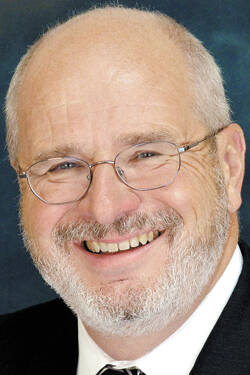The other day, Gov. Eric Holcomb did his best to spray perfume in and around the Hoosier outhouse.
It didn’t eliminate the stench created by the Indiana General Assembly’s foolish and frantic rush to be the first state in the nation to adopt a near total ban on abortion.
How could it?
Our lawmakers had worked hard — very, very hard — to stink up the place.
Still, Holcomb tried.
He minimized the impact the ban would have on Indiana’s efforts to attract talent and treasure to the state. The governor said it would be only one of the factors investors and workers would weigh while making decisions about where to locate.
“Some might just fly over the state of Indiana because of this issue,” the governor said. “I don’t mean to act like it’ll never happen. It might. But so are a lot of other issues that factor into where someone invests.”
Eric Holcomb is a smart guy, so he must know that a lot of what he said is hogwash.
He must realize that it isn’t just a possibility that Indiana will lose opportunities because of this ban.
It’s a fact.
Already, two of the state’s largest employers and most respected companies — Cummins Inc. and Eli Lilly & Co. — have come out in opposition to the new law.
Lilly even said, because of the ban, it plans to explore opportunities for growth outside Indiana.
Consider the significance of that statement for a moment. Few companies are as synonymous with the states that house them as Eli Lilly is with Indiana. It has been a model of corporate citizenship. Few major developments in the Hoosier state over the past half-century have occurred without the active support and participation of the Lilly empire.
At any time, word that one of the state’s premier corporate citizens was looking outside Indiana for future growth opportunities would be bad news.
At this moment in history, though, it is devastating.
Economists have been warning us for more than a dozen years that a major worldwide labor shortage is coming.
We are at the front end of it now. The peak will come in 2030. Every year between now and then, the gap between the number of available workers and jobs that need to be filled will grow wider.
This labor shortage will create all sorts of challenges for companies, communities, states and countries. The competition for workers will be intense.
Because labor will be an increasingly scarce resource, companies will seek to place themselves in communities with deep and contented pools of workers. This will drive cities, states and countries to make themselves as attractive and alluring to skilled workers as possible.
It is in that climate that Indiana’s just told members of this diminishing workforce that, if they want to do their own family planning rather than have Hoosier lawmakers do it for them, they should live elsewhere.
There are many frustrating things about Hoosier politicians’ headlong rush to put this ban in place, regardless of counsel or consequence.
But one of the most frustrating is that this isn’t something a competing state or nation did to beat us.
No, this is something we did to ourselves.
It is a self-inflicted wound.
And this is no time for such self-destructive behavior.
Eric Holcomb knows how great the challenges ahead of Indiana were even before this latest act of self-immolation. He has made recruiting investment in and talent to the state the centerpiece of his governorship.
In fact, just days after he tried to wish away the trouble the abortion ban has visited upon Indiana, the governor flew to Taiwan in search of more opportunities for the Hoosier state.
The problem won’t leave him when he leaves the country.
In Taiwan, abortion is legal.
You see, Taiwan’s government, unlike Indiana’s, trusts people to make their own decisions about when and how to have a family.
John Krull is director of Franklin College’s Pulliam School of Journalism and publisher of TheStatehouseFile.com, a news website powered by Franklin College journalism students, where this commentary originally appeared. The opinions expressed by the author do not reflect the views of Franklin College. Send comments to [email protected].




